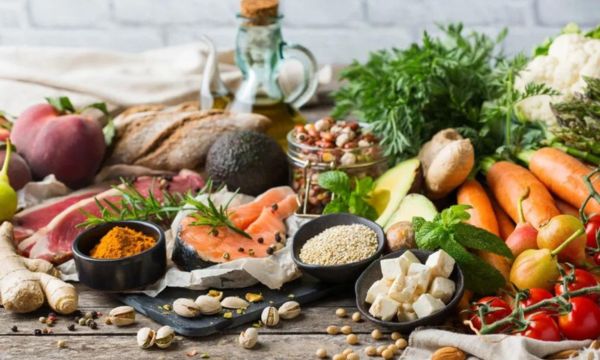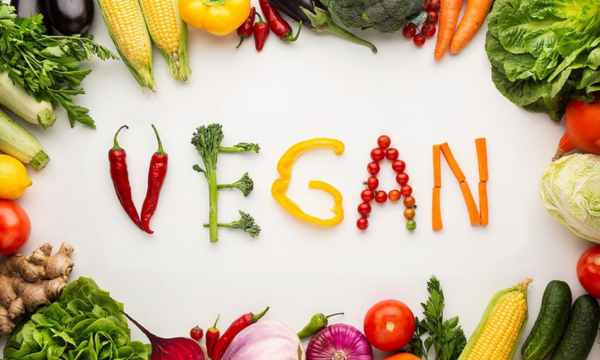Living Gluten-Free: A Comprehensive Guide
Gluten-free living has gone from being the only option for a small group of people to being an option for millions of people around the world. Whether you have celiac disease, non-celiac gluten sensitivity, or simply want to improve your overall health, removing gluten from your diet can change your life. But it’s not enough to simply stay away from something. There are many things you need to understand, change and think about in order to live without gluten. In this detailed guide, we get to the heart of gluten-free living by understanding the science behind it, nutritional considerations, practical tips, and the emotional and social aspects of this lifestyle choice.
Ad
Learn More about Gluten and Gluten-Related Diseases:
Gluten is a protein found in wheat, barley, rye and foods made from these grains. People with celiac disease, an autoimmune disease, develop an immune response when they eat gluten that can damage the small intestine. Non-celiac gluten sensitivity (NCGS) is a condition in which people who test negative for celiac disease still experience celiac disease-like symptoms after eating gluten.
How a Gluten-Free Diet Affects Your Health?
1. Choose Gluten-Free Grains
Safe choices include rice, corn, quinoa, millet and certified gluten-free oats. Checking the label for “gluten-free” approval is important to ensure no cross-contamination occurs during processing.
2. Make Sure they get Enough Nutrition
People on a gluten-free diet should pay attention to B vitamins and iron, which are often added to wheat products. It’s important to eat foods that are naturally gluten-free and rich in these nutrients, such as fresh vegetables, legumes and gluten-free whole grains.
3. Gluten-Free Foods
There are many ready-made gluten-free foods on the market, but these can be high in sugar and fat, which is bad for you. A better gluten-free diet is one that focuses on naturally gluten-free foods and meals prepared at home.
4. Understand Cross-Contamination
Cross-contamination can occur when sharing kitchens or preparing food. To avoid accidentally ingesting gluten, it’s important to use different utensils, cutting boards and cooking surfaces.
Practical Tips for Living Gluten-Free:
1. Look at the Label
It is important to learn how to read food labels carefully. Gluten can be found in sauces, foods and even some medications, which you might not expect. The key is to know which chemicals are safe and which are not.
2. It’s Safe to Eat Out
When dining out, it is important to talk to the restaurant staff. By asking how food is prepared and clarifying your dietary needs, you can ensure you are eating safely.
3. How Do You Travel without Gluten?
Need to plan gluten free travel. Finding gluten-free friendly places, carrying gluten-free snacks, and having maps translated into the local language explaining dietary restrictions can make traveling easier.
4. Gluten-Free Social Events
At social events, it can be helpful to inform the hosts in advance of any food restrictions. If you bring a gluten-free dish to share, everyone can eat safely.
All Aspects of Feelings and Relationships:
1. How to Respond to Social Problems
Social situations, especially when people are eating together, can be difficult. It is important to discuss gluten-related illnesses with friends and family and be patient and understanding as you meet your needs.
2. Mental Health
Living gluten-free can make you feel a lot of different things, from anger to worry. Support groups, therapists or online communities can help people feel included and understood.
3. Make Children Independent
Parents of children with gluten sensitivity should ensure that their children are independent and can speak for themselves. Children will feel more independent if they know what to eat and participate in the cooking.
Conclusion:
Living gluten-free is not just a way of eating, it’s a way of life. It is also a way of life that requires knowledge, alertness and strength. People can do well on a gluten-free diet if they know what they are doing, have a support group and think positively. The key is to understand the nuances of gluten-free living, from nutritional concerns to mental health, and to embrace a life not limited by dietary restrictions, but enhanced by choices that put health and wellness first.
FAQs:
1. What is gluten and why should some people avoid it?
Gluten is a protein found in wheat, barley, rye and their derivatives. Some people must avoid gluten because of celiac disease, an autoimmune disease, or non-celiac gluten sensitivity, and consuming gluten can cause side effects despite not having celiac disease.
2. Which grains are safe to eat on a gluten-free diet?
Safe gluten-free grains include rice, corn, quinoa, millet and certified gluten-free oats. It is critical to ensure that these grains are labeled “gluten-free” to prevent cross-contamination during processing.
3. How do I ensure I get enough nutrients during a gluten-free diet?
Maintain a balanced diet by including a variety of naturally gluten-free foods, such as fruits, vegetables, legumes and gluten-free whole grains. You may also need to consult a nutritionist to ensure adequate nutritional intake.
4. How can I handle social situations and eating out without eating gluten?
It is crucial that you communicate your nutritional needs clearly. Informing the restaurant staff and hosts in advance may help fulfill your request. Additionally, bringing gluten-free snacks and researching gluten-free restaurants can make social situations more manageable.
5. Are there any gluten-free support groups or communities?
Yes, there are many gluten-free support groups and online communities where people can share experiences, recipes and advice. Connecting with these communities can provide valuable emotional support and practical tips for living gluten-free.
 Understanding Daily Nutritional Needs
Understanding Daily Nutritional Needs
With all the nutritional recommendations out there, it can be difficult to figure out what to eat […]
More Going Vegan: What You Need to Know
Going Vegan: What You Need to Know
Veganism is not just a choice about what to eat; It’s also a commitment to a mindset […]
More The Ketogenic Diet: Benefits and Risks
The Ketogenic Diet: Benefits and Risks
In recent years, the ketogenic diet, also known as the ‘ketogenic diet’, has become very famous as […]
More